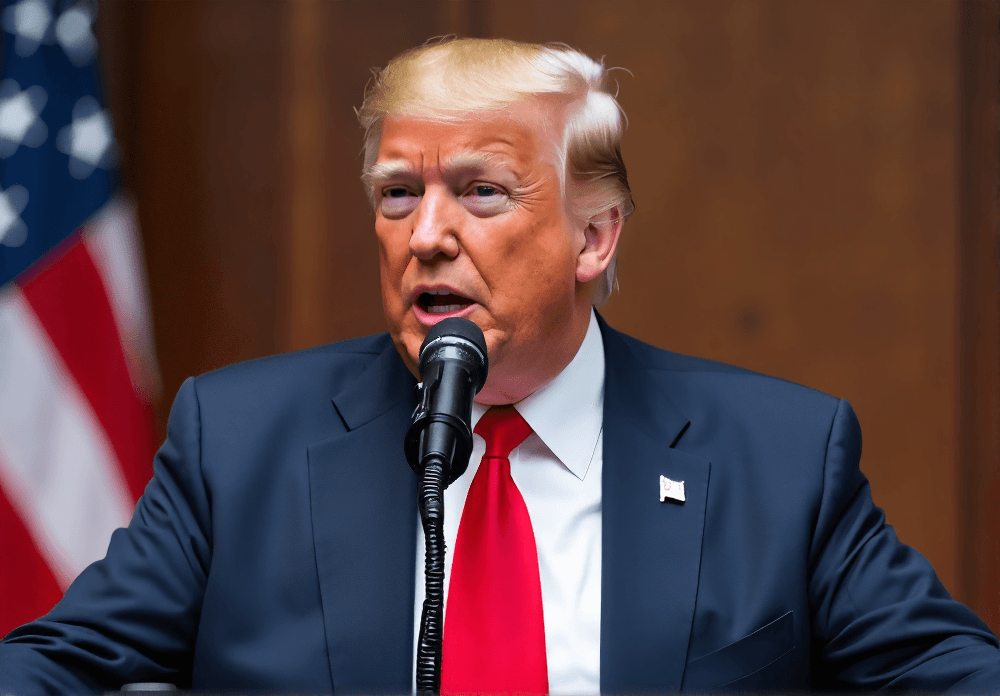The use of social media by Donald Trump during his presidency and political career represents a unique chapter in American political communication. This analysis examines his most significant tweets, selected based on their historical importance, policy impact, and influence on public discourse.
Policy Announcements and Executive Decisions
Among the most consequential tweets were those announcing major policy decisions. In July 2017, Trump used Twitter to announce a significant military policy change: “After consultation with my Generals and military experts, please be advised that the United States Government will not accept or allow Transgender individuals to serve in any capacity in the U.S. Military.” This tweet, which bypassed traditional channels of military communication, demonstrated the platform’s emergence as a tool for executive policy announcement.
Another significant policy announcement came during trade negotiations: “Our relations with China have taken a BIG leap forward! Very good things will happen.” This tweet, posted during critical trade discussions, caused immediate market reactions and demonstrated how social media communications could directly impact international commerce and diplomatic relations.
International Relations
Trump’s diplomatic communications via Twitter often generated significant international attention. His 2018 tweet to Iranian President Rouhani: “NEVER, EVER THREATEN THE UNITED STATES AGAIN OR YOU WILL SUFFER CONSEQUENCES THE LIKES OF WHICH FEW THROUGHOUT HISTORY HAVE EVER SUFFERED” represented an unprecedented approach to diplomatic communication. The use of all capital letters and strong language marked a departure from traditional diplomatic discourse.
The series of tweets regarding North Korea and Kim Jong Un showed a dramatic evolution in tone, from confrontational messages about “Little Rocket Man” to more conciliatory statements following their meetings. This demonstrated how Twitter could reflect and influence the dynamics of international relations in real-time.
Electoral Politics and Democracy
During both the 2016 and 2020 election cycles, Trump’s tweets played a central role in political discourse. His election-related tweets gained particular significance during the post-2020 election period. The tweet “STOP THE COUNT!” became one of his most cited messages, encapsulating his position on the electoral process and inspiring significant political action among his supporters.
Market Impact
Several tweets had immediate and significant effects on financial markets. His 2018 tweet about Amazon: “I have stated my concerns with Amazon long before the Election. Unlike others, they pay little or no taxes to state & local governments” caused immediate fluctuations in Amazon’s stock price and demonstrated the market-moving power of presidential tweets.
Media Relations
Trump’s relationship with the media was often defined through his tweets. His frequent use of the term “FAKE NEWS” became a signature phrase, first appearing in tweets critiquing media coverage. The phrase “Any negative polls are fake news” became particularly notable as an example of his media criticism style.
Crisis Communication
During national crises, Trump’s tweets often served as his primary communication method. His early tweets about COVID-19, such as “We have it totally under control” and subsequent messages about potential treatments, demonstrated how social media could function as a crisis communication tool, though not always effectively.
Personal Broadcasting
Some of Trump’s most memorable tweets were personal declarations or commentary. The covfefe tweet – “Despite the negative press covfefe” – became a cultural phenomenon, demonstrating how even apparent errors could generate massive public attention and engagement.
Platform Innovation
Trump’s use of Twitter introduced new communication patterns to political discourse. His creation of terms like “Sleepy Joe,” “Crooked Hillary,” and “Lyin’ Ted” demonstrated the power of social media for political branding and opponent characterization.
Legal and Constitutional Implications
Several tweets took on legal significance during his presidency. His tweet declaring a “Muslim ban” was later cited in court cases challenging his executive orders on immigration, demonstrating how social media statements could have legal ramifications.
Administrative Announcements
Personnel changes were often announced via Twitter, such as the dismissal of various cabinet members and administration officials. These tweets, such as the announcement of John Bolton’s departure as National Security Advisor, showed how social media had become a primary channel for executive branch communications.
Post-Presidency Impact
Even after leaving office and being removed from major social media platforms, the impact of Trump’s tweets continues to influence political discourse. His communication style has influenced how other political figures use social media and has shaped expectations for political communication in the digital age.
Public Response and Engagement
Trump’s tweets consistently generated unprecedented levels of engagement. His most retweeted and liked posts often combined personal commentary with policy statements, demonstrating the effectiveness of this hybrid communication style in generating public response.
Historical Documentation
The complete collection of Trump’s tweets has become an important historical record, preserved by various organizations and archives. These digital communications provide unique insights into his presidency and the evolution of political communication in the 21st century.
Media Coverage Patterns
Traditional media outlets developed new protocols for covering presidential tweets, often treating them as official statements requiring immediate coverage and analysis. This created a new dynamic in political journalism and public information dissemination.
Conclusion
Donald Trump’s most significant tweets represent a transformation in political communication and executive messaging. These digital communications demonstrate the power of social media to influence policy, markets, international relations, and public discourse. Their impact continues to shape political communication strategies and raises important questions about the role of social media in democratic governance.
The legacy of these tweets extends beyond their immediate political context to influence how future leaders may approach digital communication. Understanding their impact helps illuminate the evolving relationship between social media, political leadership, and public discourse in contemporary democracy.
